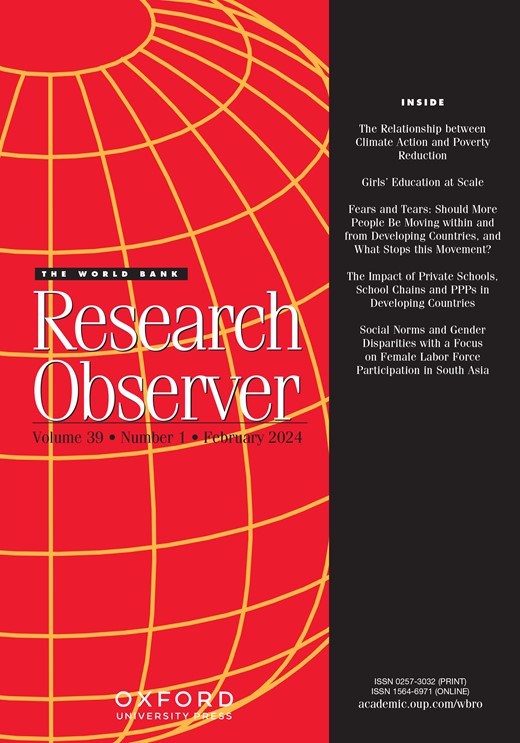产业政策:增长的灵丹妙药还是毒药?
IF 3.3
1区 经济学
Q1 DEVELOPMENT STUDIES
引用次数: 123
摘要
东亚金融危机引发的关于产业政策的辩论,是目前有关政府选择性干预在促进工业快速增长方面的有效性的讨论的最新篇章。1997年始于大韩民国的危机和20世纪90年代大部分时间里日本的疲弱增长,促使人们重新审视这两个最强烈追求行业选择性的国家政府行动的有效性。如果工业政策在加速增长方面确实很重要,那么其他仍处于工业化早期阶段的国家或许可以从中吸取教训。相反,如果贡献的规模很小,则应该采取更传统的政策,除非假设政府可以在日本和韩国的努力基础上有所改进。本文章由计算机程序翻译,如有差异,请以英文原文为准。
Industrial Policy: Growth Elixir or Poison?
The debate about industrial policy occasioned by the East Asian financial crisis is the latest chapter in an ongoing discussion about the effectiveness of selective government intervention in fostering rapid industrial growth. The crisis that began in the Republic of Korea in 1997 and the weak growth in Japan over much of the 1990s have prompted a reexamination of the effectiveness of the government actions in the two countries that pursued sectorial selectivity most intensively. If indeed industrial policies were important in accelerating growth, there may be lessons for other countries still in the early stages of industrialization. Conversely, if the magnitude of the contribution was small, more conventional policies should be pursued unless it is assumed that governments can improve on the efforts of Japan and Korea.
求助全文
通过发布文献求助,成功后即可免费获取论文全文。
去求助
来源期刊

World Bank Research Observer
Multiple-
CiteScore
12.60
自引率
1.20%
发文量
8
期刊介绍:
The World Bank Journals, including the Research Observer, boast the largest circulation among economics titles. The Research Observer is distributed freely to over 9,100 subscribers in non-OECD countries. Geared towards informing nonspecialist readers about research within and outside the Bank, it covers areas of economics relevant for development policy. Intended for policymakers, project officers, journalists, and educators, its surveys and overviews require only minimal background in economic analysis. Articles are not sent to referees but are assessed and approved by the Editorial Board, including distinguished economists from outside the Bank. The Observer has around 1,500 subscribers in OECD countries and nearly 10,000 subscribers in developing countries.
 求助内容:
求助内容: 应助结果提醒方式:
应助结果提醒方式:


